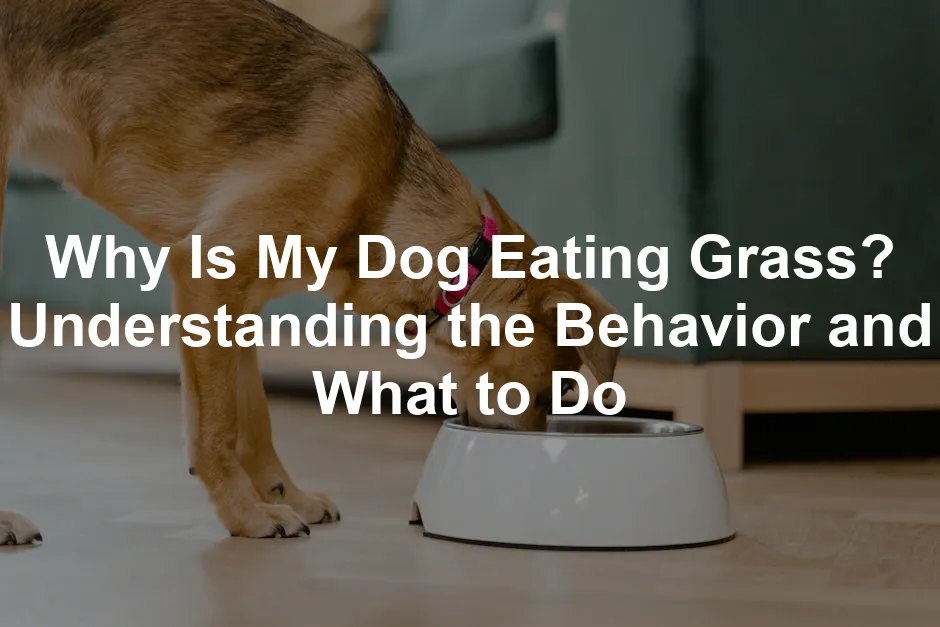
Why Is My Dog Eating Grass? Understanding the Behavior and What to Do
Introduction
In the great canine mystery of life, one of the most puzzling behaviors is when our furry companions decide to munch on a mouthful of grass. As perplexing as it seems, many dog owners find themselves wondering, “Why is my dog eating grass?” Is your pup channeling their inner cow, or is there something deeper at play? Fear not! This article will explore the various reasons behind this common yet often misunderstood behavior. From dietary needs to sheer boredom, we’ll cover it all, ensuring you’re well-equipped to address your dog’s grazing habits.
Let’s start with the basics. Dogs are natural scavengers. This means they often explore their environment in curious ways, including nibbling on grass. While it may seem alarming, many experts agree that this behavior is usually harmless. Some dogs might just think grass is the latest gourmet treat, much like a Greenies Original Dental Dog Treat.
However, it’s not all about taste. Dogs can also eat grass for various reasons, including nutritional needs and instincts inherited from their wild ancestors. For instance, a dog may munch on grass to increase their fiber intake, which aids digestion. Now, before you assume your pooch is unwell, know that most dogs don’t show any signs of illness before indulging in this peculiar snack.
Research suggests that only a small percentage of dogs vomit after eating grass. In fact, many of them simply enjoy the act of grazing. So, while your dog might be channeling their inner herbivore, it doesn’t necessarily mean they’re in distress. And if you’re looking to give your pup a healthier snack, consider the Blue Buffalo Life Protection Formula Dog Food.
It’s important to note that if your furry friend is eating grass excessively or seems to be unwell afterward, it’s time to consult your veterinarian. They can help rule out any underlying health issues. In the meantime, understanding why your dog has taken to this odd habit can help you manage their behavior effectively.
In this article, we’ll break down the reasons behind grass-eating, when to worry, and how you can support your pup’s health and happiness. After all, a well-informed pet owner is a happy pet owner!

Summary
Dogs eating grass is a common phenomenon that has perplexed pet owners for years. While it may seem alarming, it’s often a normal behavior that can stem from various factors. These include dietary deficiencies, boredom, or even a simple enjoyment of the grass itself. Research indicates that many dogs eat grass without any prior signs of illness, challenging the myth that they do it to induce vomiting. Understanding why your dog eats grass is crucial for ensuring their health and happiness.
This article unpacks the reasons behind this behavior, discusses when it’s cause for concern, and provides tips on how to manage it effectively. We’ll explore the relationship between diet and grass-eating, examine any potential health risks, and suggest strategies to keep your dog entertained and engaged. By the end of this guide, you’ll be more informed about your dog’s grass-eating habits, and ready to take action if necessary. And if you’re looking to keep your dog cozy while you do all this research, check out the PetFusion Ultimate Dog Bed.
With a blend of humor and insight, we aim to provide you with valuable information that turns your confusion into clarity. Because let’s face it, a happy dog equals a happy owner!
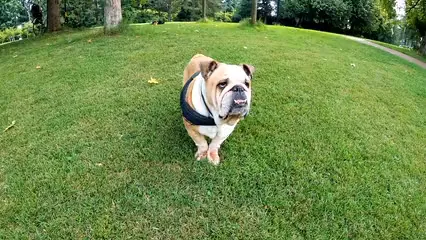
Reasons Why Dogs Eat Grass
Dietary Needs
Nutritional Deficiencies
Dogs, like humans, need a balanced diet to thrive. A lack of essential nutrients can lead to some quirky behaviors. When dogs don’t get enough vitamins or minerals, they might turn to grass as a source of missing nutrients. Although dogs are primarily carnivores, they can also be omnivores by nature. In the wild, their ancestors consumed a variety of plants along with their prey. This instinct may still linger today. If your dog is on a poor-quality diet or not receiving adequate nutrition, they might munch on grass to fill the nutritional gaps. For example, if your pup’s food lacks certain vitamins, they might seek out grass in a bid to supplement their diet. Consulting with a veterinarian about switching to a better dog food can help. A high-quality, well-balanced diet often reduces the urge to graze on grass. You might want to consider the Nature’s Logic Canine Chicken Meal.
Interestingly, a case involving a miniature poodle highlighted this issue. The dog ate grass daily for years but stopped after switching to a high-fiber diet. This suggests that addressing dietary deficiencies can do wonders for your dog’s habits. Paying close attention to your dog’s diet is vital, as a well-fed dog is less likely to indulge in grass munching.
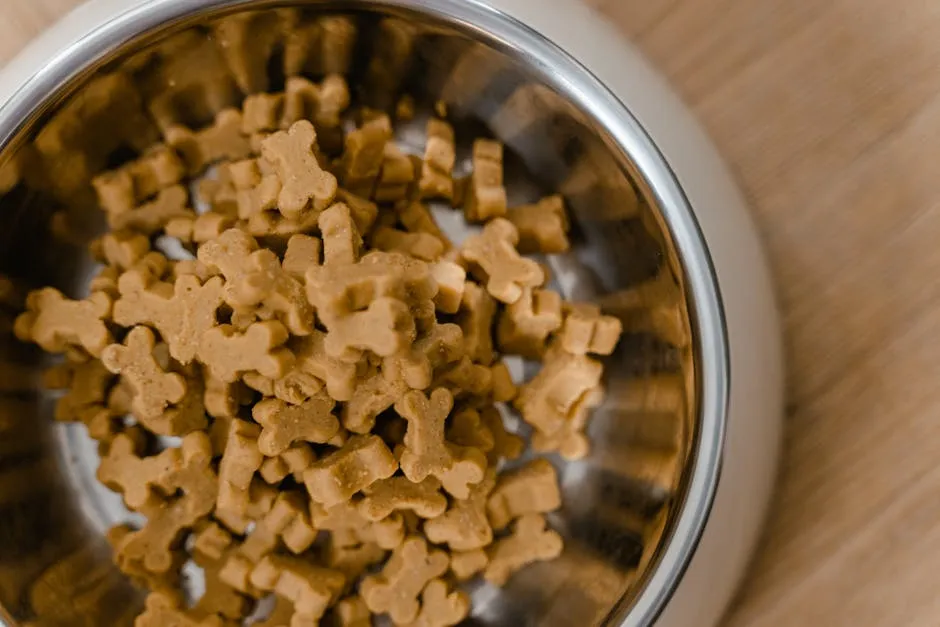
Need for Fiber
Fiber plays a crucial role in a dog’s digestive health. It helps regulate bowel movements and keeps things moving smoothly. If your dog’s diet lacks sufficient fiber, they might turn to grass as an alternative source. Grass, while not a perfect solution, can provide the roughage that helps with digestion. When dogs consume grass, they may feel a sense of relief from gastrointestinal discomfort. It’s important to keep their diet balanced, incorporating fiber-rich foods like fruits and vegetables. If your dog continues to seek out grass, it may be time to reassess their food. A diet that includes adequate fiber can alleviate the urge to graze and improve their overall health. For a great addition to their diet, consider Zesty Paws Probiotic Bites for Dogs.
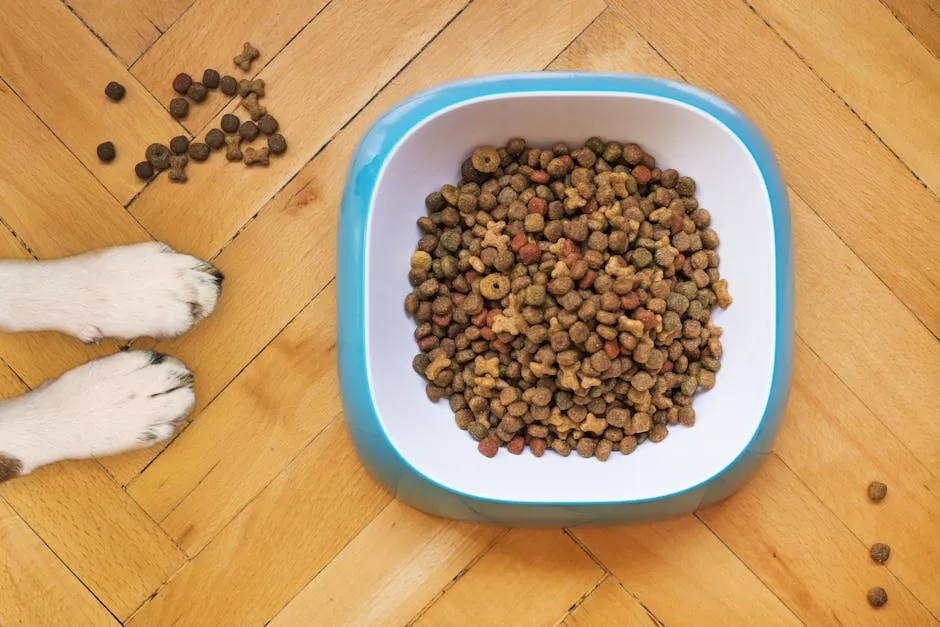
Behavioral Aspects
Boredom and Attention-Seeking
Just like humans, dogs can experience boredom. When left alone for long periods, they might start looking for ways to entertain themselves. Eating grass often becomes a go-to option. Dogs are clever and quickly learn that certain behaviors get them attention. If you rush over every time your pup starts munching on grass, they may think it’s a fun way to get your attention.
To combat boredom, engage your dog in regular play and exercise. Interactive games, puzzle toys, or even a good ol’ game of fetch can provide the stimulation they crave. Keeping your dog entertained can significantly reduce their desire to eat grass. Remember, a tired dog is a happy dog! Want to keep them engaged? Check out the Outward Hound Hide-A-Squirrel Puzzle Toy.
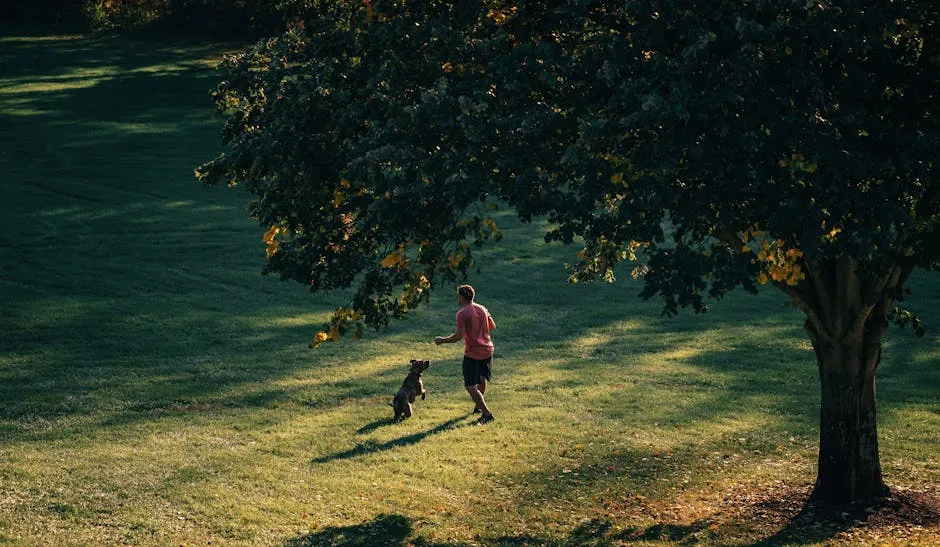
Instinctual Behavior
This grass-eating behavior can also stem from instinct. Dogs share an evolutionary history with wild canines, who often consumed plants along with their prey. This instinct may still manifest in modern dogs. Eating grass might be a way to reconnect with their wild ancestry, even if they no longer hunt for food.
Furthermore, researchers have found that about 11-47% of wolves also eat grass. This suggests that the behavior isn’t entirely uncommon among canines. Understanding this instinctual behavior can help you appreciate why your dog might indulge in grass munching. While it may seem odd, it’s often just a nod to their ancient roots.
In conclusion, your dog’s grass-eating habits can stem from a variety of reasons. From nutritional deficiencies to instinctual behaviors, understanding these motivations can help you better support your furry friend. Observing their habits and ensuring they receive proper nutrition and stimulation will go a long way in managing their grass-eating tendencies. And remember, if you need a little help with managing their dietary needs, consider the PetSafe Healthy Pet Gravity Feeder.
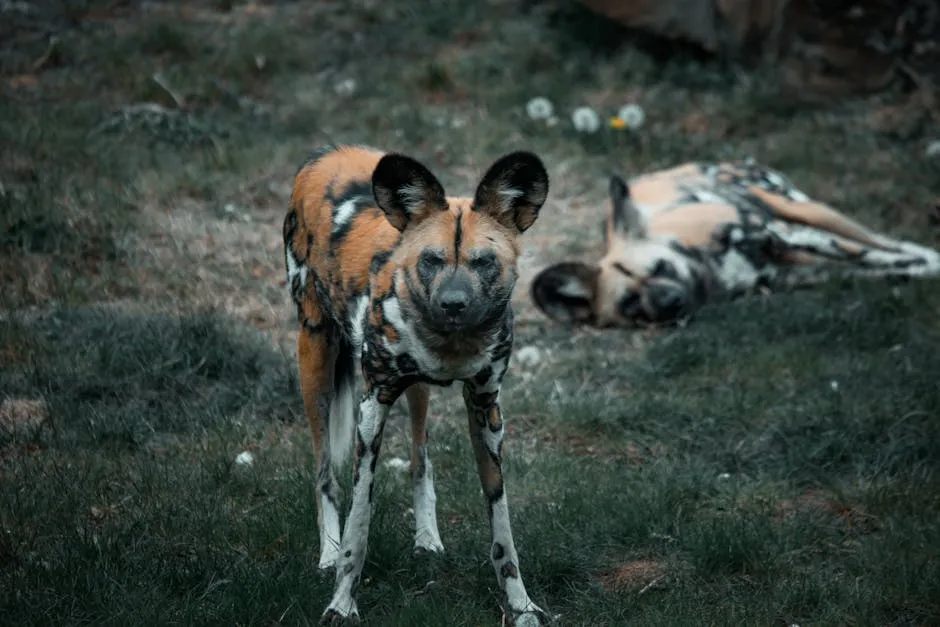
Enjoyment
When it comes to grass, some dogs have a taste for the green stuff! Yes, that’s right—your pup might just enjoy the taste and texture of grass. Fresh, tender blades of grass can be quite appealing to our furry friends. Just think about it: the crispness, the earthy aroma, and the feeling of nibbling on something that’s oh-so-natural!
Dogs are quirky creatures, and their taste buds can be surprisingly adventurous. While we might wrinkle our noses at the thought of munching on grass, many dogs find it delightful. It’s like a gourmet salad to them! This behavior is especially common in the spring and summer when grass is at its peak freshness.
Imagine your dog frolicking in the yard, excitedly chomping on the greenery. You might wonder if they’re trying to channel their inner herbivore, but in reality, they might just be enjoying a crunchy snack. Sometimes, they might even prefer specific types of grass. If you notice your pup consistently munching on a certain patch, it could be their favorite flavor of the week!
So, the next time you catch your dog grazing, don’t panic. They might simply be savoring a delightful treat straight from nature. Just ensure that the grass they’re enjoying isn’t coated in pesticides or other harmful chemicals. After all, we want those tails wagging and those bellies happy! And speaking of happy, consider giving them a fun toy like the KONG Classic Dog Toy to keep them entertained!
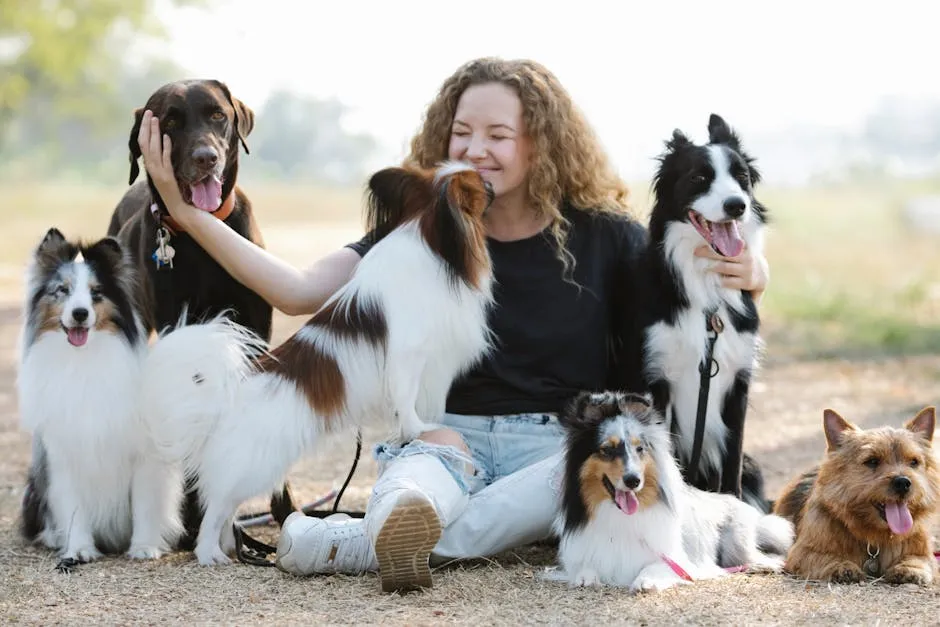
The Risks of Dogs Eating Grass
Health Risks
While dogs munching on grass can be mostly harmless, there are some potential risks that every pet owner should be aware of. First up, let’s talk about pesticides. If your lawn is treated with chemicals, those grassy bites could lead to some nasty health issues. Dogs may ingest these toxic substances, resulting in symptoms like vomiting, excessive drooling, or even lethargy. Always keep an eye on where your dog is grazing!
Next, gastrointestinal irritation is another concern. Grass can be rough on a dog’s tummy. If your pup consumes too much, it can lead to uncomfortable gas, bloating, or even diarrhea. And while we’re on the subject, let’s not forget about the risk of intestinal blockages. Dogs that eat large amounts of grass—especially combined with other non-food items—could face serious complications that may require veterinary intervention.
Lastly, there’s the issue of parasites. Grass can sometimes carry harmful critters like worms, which can pose a risk to your dog’s health. Regular vet check-ups and parasite prevention are essential in keeping your furry friend safe. And while you’re at it, consider investing in a good grooming tool like the Furminator deShedding Tool for Dogs to help keep them clean and healthy!

So, while it may seem innocent enough, keep a watchful eye on your dog’s grass-eating habits. It’s a good idea to be proactive about their health, ensuring they only enjoy safe, chemical-free grass.
When to Consult a Veterinarian
Knowing when to call the vet can save your dog from unnecessary discomfort. If your dog is eating grass frequently or excessively, it’s time to take action. Pay attention to any signs of illness. If your pup is vomiting or experiencing diarrhea after munching on grass, don’t hesitate to reach out to your veterinarian.
Other concerning symptoms include lethargy, lack of appetite, or any unusual behavior. If your dog shows these signs consistently, it’s best to consult with a professional. They can help determine whether there’s an underlying issue causing your dog’s grass cravings.
Additionally, if you suspect your dog has eaten grass treated with harmful chemicals, prompt veterinary attention is crucial. It’s better to be safe than sorry! Remember, your dog’s well-being is worth every phone call. So, keep an eye on their habits, and don’t shy away from seeking help when needed. And don’t forget to keep your home clean with a reliable vacuum like the Bissell Pet Hair Eraser Handheld Vacuum.
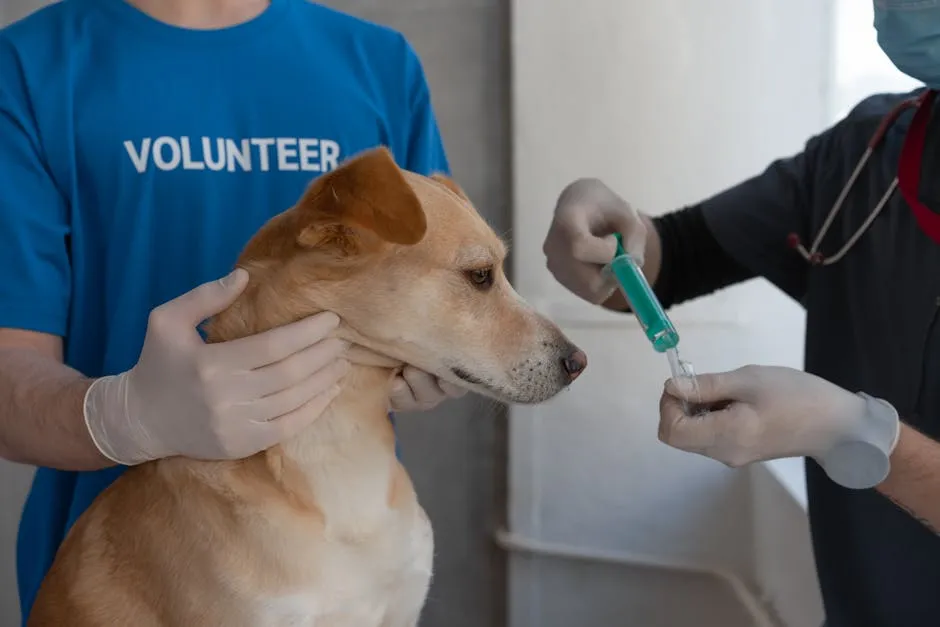
Should You Stop Your Dog from Eating Grass?
When It’s Okay
Let’s clear the air: it’s generally okay for dogs to eat grass. Most dogs nibble on grass out of curiosity or simply because they find it tasty. Some pups might enjoy the fresh, tender blades, especially in spring. Grass can offer a bit of roughage, supporting digestion. If your dog occasionally indulges, it’s likely harmless. Just ensure the grass is free from pesticides or chemicals. However, if your dog eats grass excessively or shows signs of distress afterward, it’s time for a vet visit. Monitoring their habits is key to ensuring they’re healthy and happy. Also, consider using a PetSafe Easy Walk Dog Harness to help keep them safe during walks!
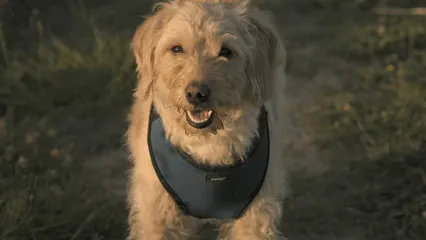
How to Discourage the Behavior
If you’re concerned about your dog’s grass-eating habits, there are several ways to redirect their focus. First, ensure they get enough exercise. A well-exercised dog is less likely to engage in unwanted behaviors. Consider daily walks, fetch sessions, or playdates with fellow furry friends.
Next, provide mental stimulation. Interactive toys or puzzle feeders can keep their minds engaged. Boredom often leads to grass munching, so keeping them entertained is essential. Enrichment activities like obedience training or scent games can also be beneficial. Speaking of interactive toys, check out the Outward Hound Fun Feeder Slow Bowl to make mealtime fun!
When out for walks, carry tasty treats to reward your pup for ignoring grass. Positive reinforcement can help break the grass-eating habit. Teach commands like “leave it” or “come” to redirect their attention. If they start heading for the grass, give a gentle tug on the leash and encourage them to focus on you instead.
Lastly, create a designated “snack area” with safe grass or dog-friendly plants. This gives them a place to indulge without harming their health. By implementing these strategies, you can help your dog enjoy life without turning the yard into their personal salad bar. And if you need some help with training, the Dog Training Clicker can be a great tool!
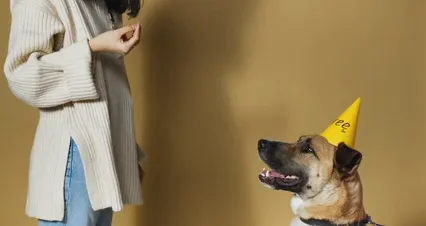
Conclusion
In conclusion, while it may seem unusual to see your dog munching on grass, it’s often a natural behavior linked to various factors including dietary needs, boredom, and instinct. Understanding these reasons can help you address any concerns and ensure your furry friend remains healthy and happy. Always monitor your dog’s behavior and consult with a veterinarian if you notice any unusual symptoms. With the right approach, you can manage your dog’s grass-eating habits effectively, ensuring that they lead a fulfilling and healthy life. And if you’re looking for a fun way to bond with your dog, consider the Chuckit! Ultra Ball Dog Toy to keep them active!
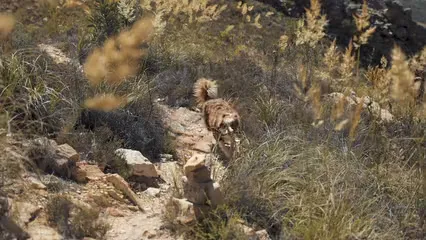
FAQs
Why do some dogs vomit after eating grass?
Most dogs eat grass without any prior signs of illness. Surprisingly, less than 25% of dogs vomit after munching on grass. While some believe dogs eat grass to induce vomiting, studies show that this behavior isn’t common. It seems that many dogs simply enjoy the act of grazing. However, if your dog consistently vomits after eating grass or shows unusual symptoms, it’s essential to consult your veterinarian. They can help rule out any underlying health issues, ensuring your pup stays happy and healthy.
Is it safe for my dog to eat grass?
Generally, it’s safe for dogs to eat grass, provided it’s free from harmful chemicals. Many dogs chow down on grass occasionally, treating it like a snack! However, be cautious of lawns that have been treated with pesticides or fertilizers, as these can be toxic. Always monitor your dog’s grass-eating habits, and if you notice excessive consumption or signs of distress, consult your vet. Keeping your dog safe involves ensuring they enjoy their grassy delights responsibly.
Can I give my dog safe grasses to eat?
Absolutely! You can grow dog-safe grasses like wheatgrass or oat grass at home. These options provide a delightful snack that’s rich in nutrients. Many dogs enjoy the taste and texture of these grasses. Just make sure they’re grown without harmful chemicals. Creating a small garden patch for your pup can be a fun project! It gives them a safe snacking option while keeping them entertained. Plus, it’s a great way to add a little green to your home!
How can I improve my dog’s diet to prevent grass-eating?
If your dog frequently eats grass, consider enhancing their diet. A balanced diet should include sufficient fiber, which aids digestion. Look for high-quality dog foods that offer adequate nutrients. You might also incorporate fiber-rich fruits and veggies like carrots, pumpkin, or green beans. If you suspect a nutritional deficiency, consult your veterinarian about dietary adjustments or supplements. Keeping your dog’s tummy happy can help curb their grass cravings. Remember, a well-fed dog is less likely to nibble on grass.
What are some signs that I should take my dog to the vet?
Monitoring your dog’s health is crucial. If you notice any of the following signs, it’s time to consult your vet: Persistent vomiting or diarrhea after eating grass. Lethargy or lack of appetite. Abdominal discomfort or bloating. Excessive grass consumption without any apparent reason. Any unusual behaviors or symptoms that raise concern. Being proactive about your dog’s health ensures they stay vibrant and full of life. Don’t hesitate to reach out to a professional if you have doubts; your furry friend deserves the best care!
Please let us know what you think about our content by leaving a comment down below!
Thank you for reading till here 🙂
All images from Pexels




